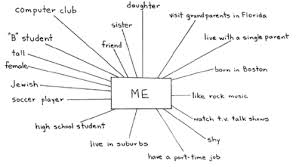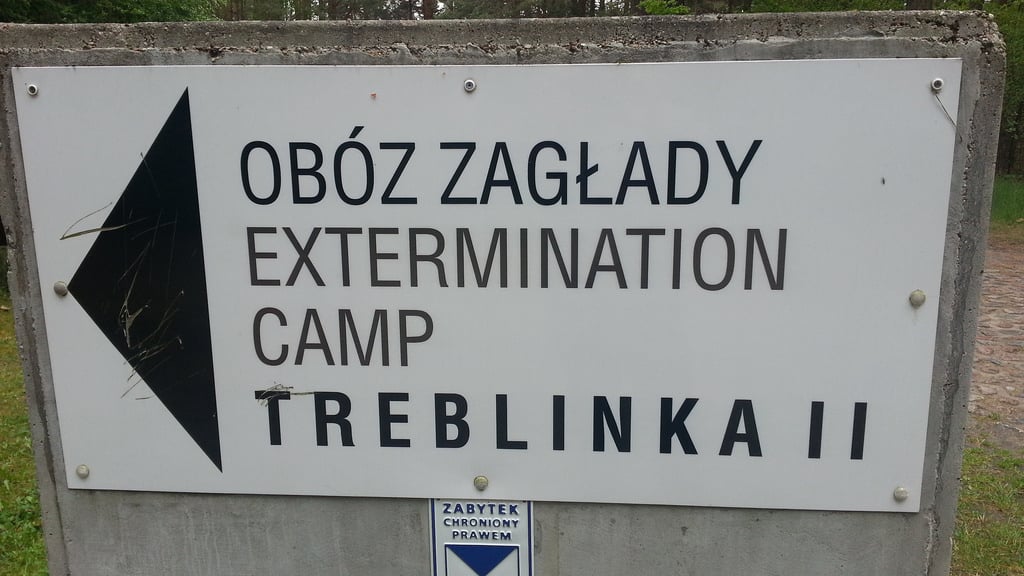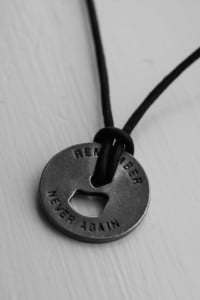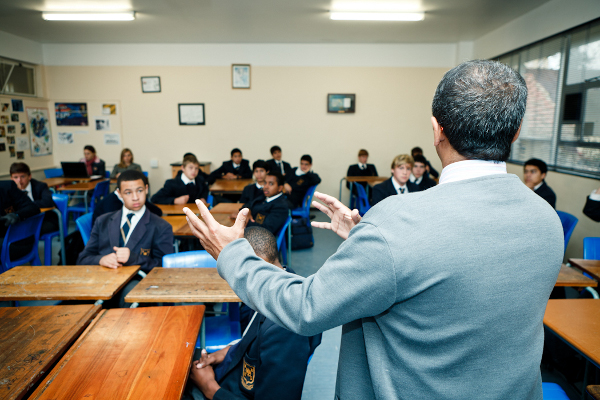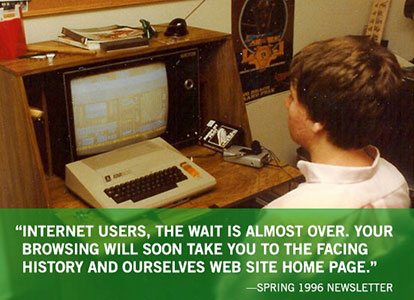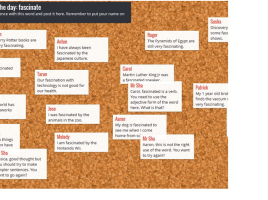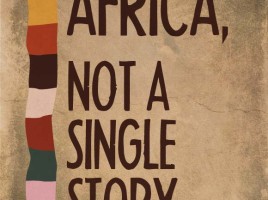Last week I had the honour of participating in the Facing History and Ourselves: Holocaust and Human Behaviour summer seminar at the Ontario Institute for Studies in Education.
6 Ways I Am Bringing my Transformative Learning to My New Facing History Classroom
Posted by Jonathan Temporal on August 25, 2014
Topics: Professional Development, Facing History Resources, Identity, Middle School, Strategies
Over the past three months Facing History and Ourselves, in partnership with Regent Park Focus and with funding from Mozilla Hive Community Projects, worked with students from several Toronto District School Board high schools to create short radio pieces exploring issues important to local youth. This project was called RadioZilla.
Topics: Choosing to Participate, Facing History Resources, Identity, EdTech, Innovative Classrooms, Media Skills, Technology, Radiozilla, Inside a Genocide Classroom, Personal history
This week, our office director Leora, along with several other Facing History staff and board members, are traveling in Poland as part of a learning trip. Over the course of nine days, they are exploring questions about history, memory, and legacy that are at the core of our work. With the help of Polish and Jewish scholars, witnesses to history, community activists, politicians and journalists, as well as organizations that have worked with Facing History throughout the past 25 years, they will be challenged to think in new ways as we confront the past and struggle with questions about the present and future. On Monday, Leora and the group visited the Treblinka extermination camp. Read her thoughts here:
Topics: Antisemitism, Facing History Resources, Holocaust, History, Museum Studies, Holocaust Education, Memorial, Personal history
I wear a pendant around my neck. It’s about the size of a quarter and it has the silhouette of a solitary candle carved out of the middle. Written around the candle are the words Remember and Never Again. It’s a simple, yet powerful design. A student, noticing this, asked me why I often wore it and what it meant. Instead of answering the question directly, I turned it back to her. I told her that a friend of mine had bought it for me at the United States Holocaust Memorial Museum in Washington D.C. and I asked her why we study the Holocaust. Why do we need to remember?
Topics: Art, Facing History Resources, History, Memorial, Strategies, Genocide and Crimes Against Humanities Course, Lesson Ideas, CHG
Later this week, South Africa will celebrate 20 years of democracy – on April 27, 1994, citizens of the country voted alongside one another in the first post-apartheid elections. The case study of South Africa is an important one to introduce students to ideas about global citizenship, while teaching about the formation and strategies of the anti-apartheid movement. Check out the five resources below to help plan a lesson that explore issues of human rights and this important moment in South African history in your classroom:
Topics: Choosing to Participate, Human Rights, Facing History Resources, Identity, History, Memorial, current events, We and They, In the news, Social Justice
Happy (belated) New Year! A little while ago, we were looking through a stack of old Facing History newsletters, and had a good laugh at this ad from 1996:
Topics: Facing History Resources, Technology, current events, In the news
New to our Toronto Library: "The Ghosts of the Third Reich"
Posted by J H Slater on January 21, 2014
I used to think that Holocaust perpetrators were "other people", some monsters out there. And suddenly I had to realize that my own grandfather was one of them.
Ursula Boeger, granddaughter of Friedrich Wilhelm Boger, Officer at Auschwitz Concentration Camp
"The Ghosts of the Third Reich" documents the poignant and anguished stories of descendants of the Nazis as they confront their family's past and communicate their most profound feelings of guilt by inheritance. These individuals, whose family members were supporters, officers, and elite of the Nazi regime, share a common desire to distance themselves from Nazi ideology and the actions of their ancestors; and to liberate themselves from the guilt, shame, and pain that continue to levy a heavy price seventy years later. The confrontation with the inheritance of the Nazi legacy is powerfully evoked further in the inclusion of moments from The Austrian Encounter, a focal point for dialogue between descendants of Nazi perpetrators and survivors of the Holocaust.
Directed by: Claudia Ehrlich Sobral and Tommaso Valente
Produced by: SD Cinematografica
Duration: 45' Format: HD DVD
http://www.sdcinematografica.com/index.php?code=prodotti_pagina_11_540
See the trailer:
http://www.youtube.com/watch?v=iAYgkHx8Tn8
Educators with library access may contact Jeannette Slater at jeannette_slater@facing.org if they would like to borrow this resource.
Topics: Facing History Resources, Identity, History, Holocaust and Human Behaviour, CHG
Topics: Choosing to Participate, Facing History Resources, History, Best of..., Lesson Ideas, Holocaust and Human Behaviour, CHG, reflection
Terrific EdTech Tips: Top 5 Posts from Facing History's Tech Blog
Posted by Ben Gross on December 18, 2013
Topics: Professional Development, Choosing to Participate, Human Rights, Facing History Resources, Identity, History, Technology, Best of..., Lesson Ideas, Holocaust and Human Behaviour, Social Justice

